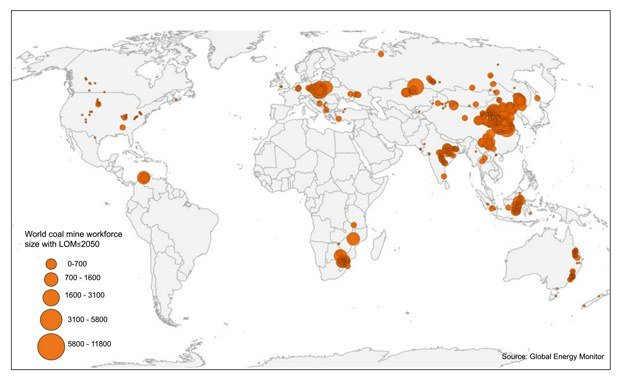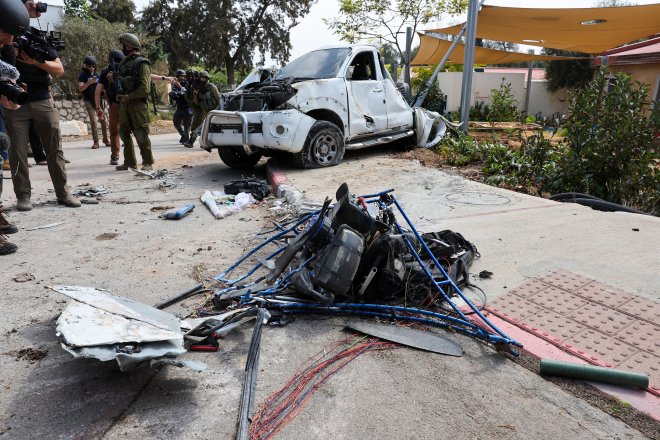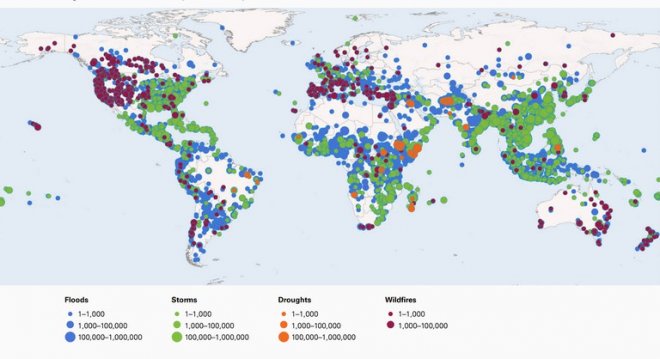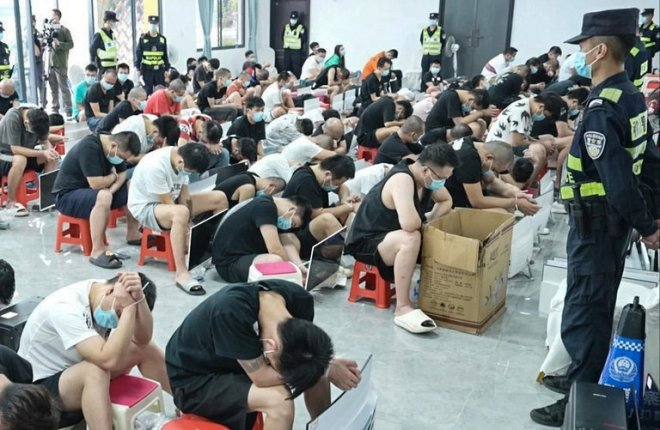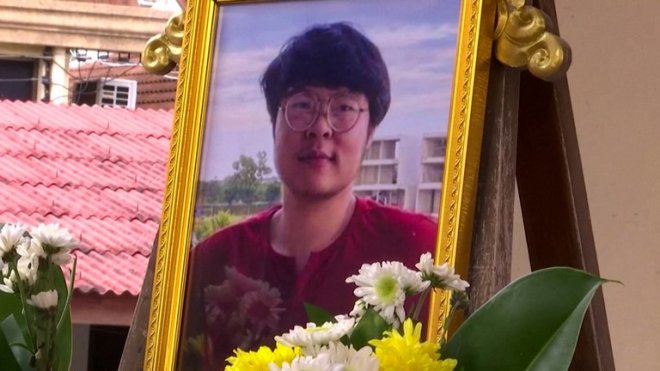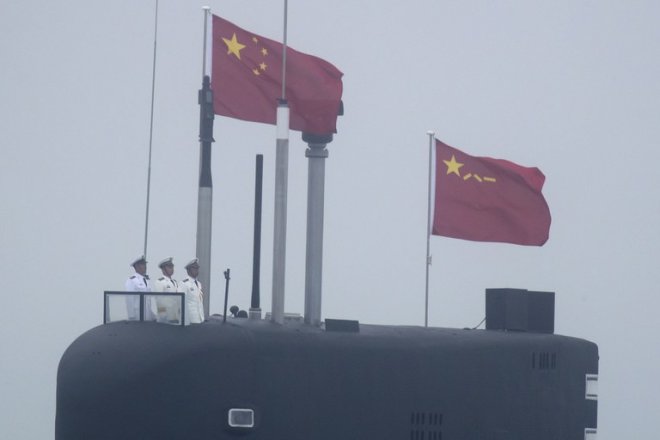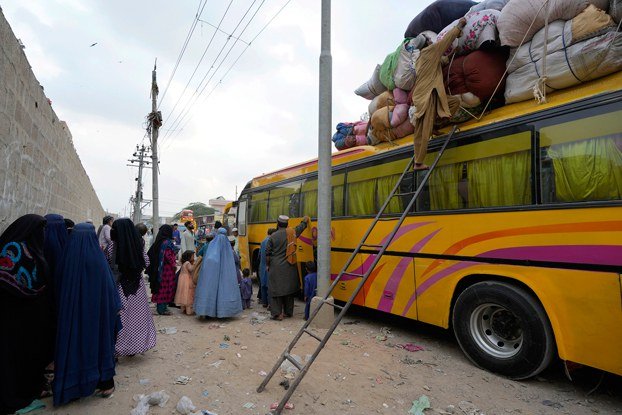Putin, whom President Xi Jinping refers to as his “dear friend,” last visited China for the Beijing Winter Olympics in Feb. 2022, declaring a “no limits friendship” days before Russia invaded Ukraine.
Trade has burgeoned between the two countries since – Russia exports around 2 million barrels of oil per day to China – and Xi and Putin are expected to discuss trade, including Moscow’s aim to build a second natural gas pipeline to China.
They are also expected to further cement their shared enmity toward the liberal West.
The only senior European Union representative in Beijing is Hungary’s prime minister, Viktor Orbán, given broad western European skepticism of China’s ambitions and a reluctance to share a platform with Putin, who is wanted for alleged war crimes.
Notable regional attendees include Thai Prime Minister Srettha Thavisin, who arrived late Monday for his official visit, where he will focus on strengthening trade and investment ties.
Srettha will pay a courtesy call on Xi and hold bilateral meetings with Chinese Premier Li Qiang and Zhao Leji, chairman of the Standing Committee of the National People’s Congress, as part of his four-day visit, the Thai foreign ministry said in a statement.
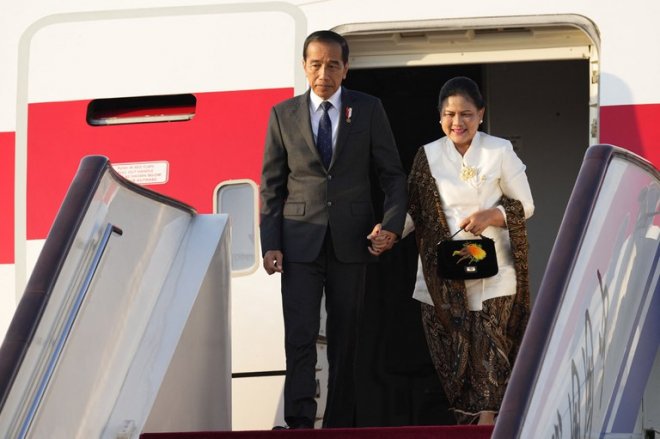 Indonesia"s President Joko Widodo (L) arrives at Beijing Capital International Airport to attend the Third Belt and Road Forum in Beijing on October 16, 2023. Credit: Pool/AFP
Indonesia"s President Joko Widodo (L) arrives at Beijing Capital International Airport to attend the Third Belt and Road Forum in Beijing on October 16, 2023. Credit: Pool/AFP Cambodian Prime Minister Hun Manet and Indonesian President Joko Widodo also arrived in Beijing on Monday, as did Lao President Thongloun Sisoulith, Sri Lankan President Ranil Wickremesinghe and the prime minister of Papua New Guinea James Marape.
The conference marks the 10th anniversary of the Belt and Road Initiative, a vision spelt out by Xi in 2013 on visits to Kazakhstan and Indonesia. Today it has 152 members and has been the driving force behind power plants and railways, as well as causing controversy over so-called “debt diplomacy.”
Non-attendees
Regional non-attendees include Anwar Ibrahim, Malaysia"s prime minister, though Malaysia has sent a delegation led by Transport Minister Loke Siew Fook.
A notably absent country is India, which has never attended a forum.
“Even before the … emergence of the Indo-Pacific construct, India staunchly opposed the BRI and, along with Japan, sought to present an alternative to the initiative,” Sana Hashmi, fellow at Taiwan-Asia Exchange Foundation, told RFA.
“While some countries initially attended the [earlier] BRI forum[s] and later decided to distance themselves from it, India consistently recognised the potential detrimental impact of the BRI on its national interests and the regional landscape.
“India’s concerns about the BRI – expanding China’s sphere of influence, increasing regional dependency on China, trapping countries in debt, and violating countries’ sovereignty – have been shared by several major powers and like-minded countries over the course of a decade,” said Hashmi.
 A view shows signage at China National Convention Center ahead of the Third Belt and Road Forum in Beijing, China October 16, 2023. Credit: Reuters
A view shows signage at China National Convention Center ahead of the Third Belt and Road Forum in Beijing, China October 16, 2023. Credit: ReutersIlshat Hassan Kokbore, vice president of the Executive Committee at the World Uyghur Congress, said “First, China wants to expand its influence in Afghanistan and neutralize any potential threat to its sovereignty. Second, China wants to develop close relations with the Taliban and turn them against the U.S.
“Third,” he added, “China wants to use Afghanistan to further cement its relations with other countries on the One Belt One Road [the initial name of the BRI], such as Iran and Middle Eastern countries.”
Christoph Nedopil Wang, the director of the Griffith Asia Institute, told The Guardian that inviting Putin was essentially a snub to western governments, highlighting “the alignment of Chinese and Russian political priorities.”
‘Shared future’
Ahead of the forum, China last week published a white paper that claimed “the ultimate goal of the BRI is to help build a global community of shared future,” in what can be seen as emblematic of China’s aim of achieving solidarity with the Global South as a counter to a U.S. dominated world.
Among a dizzying array of claimed accomplishments and future goals that include air, maritime and road economic corridors, the paper also emphasized “people-to-people ties … [and a] spirit of friendly cooperation of the ancient Silk Road.”
 The opening ceremony for launching Southeast Asia"s first high-speed railway at Padalarang station in Bandung, West Java, Indonesia, Monday, Oct. 2, 2023. Indonesian President Joko Widodo launched Southeast Asia"s first high-speed railway, a key project under China"s Belt and Road infrastructure initiative. Credit: AP
The opening ceremony for launching Southeast Asia"s first high-speed railway at Padalarang station in Bandung, West Java, Indonesia, Monday, Oct. 2, 2023. Indonesian President Joko Widodo launched Southeast Asia"s first high-speed railway, a key project under China"s Belt and Road infrastructure initiative. Credit: APState nationalist tabloid Global Times reported on the forum"s decorations and atmosphere in Beijing. Some foreign guests expressed optimism about peace and global cooperation.
It"s been four years since the last BRF in 2019, and China is eager to showcase the BRI"s decade-long achievements.
Edited by Mike Firn and Elaine Chan.












